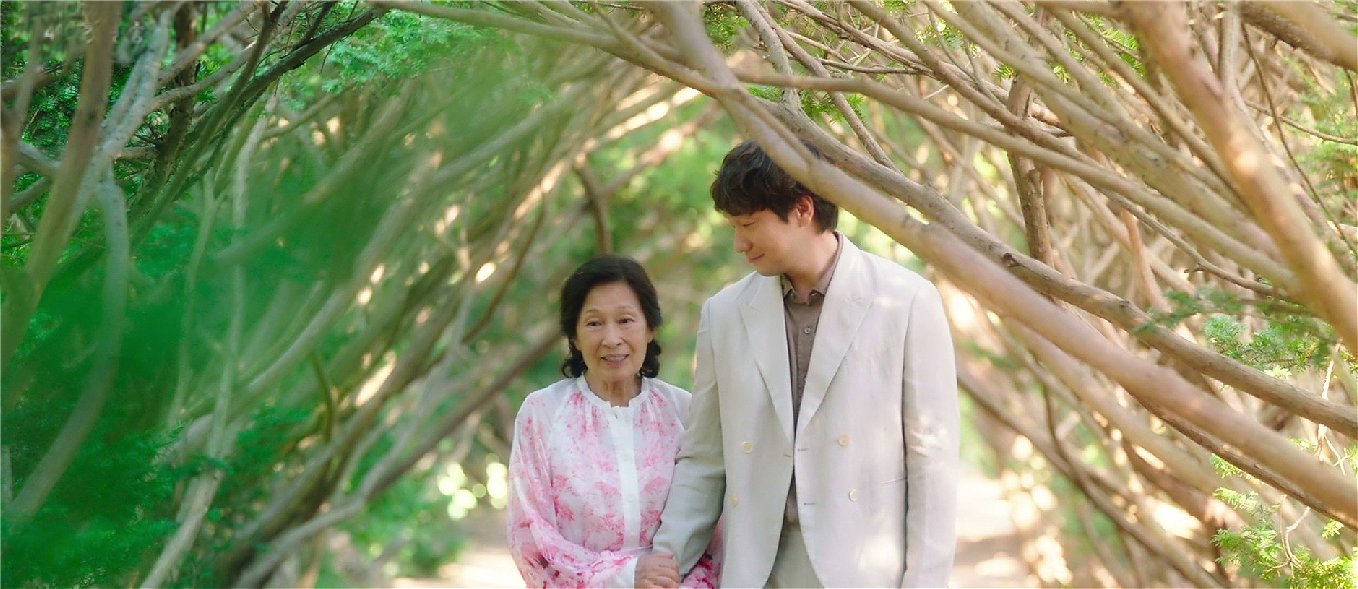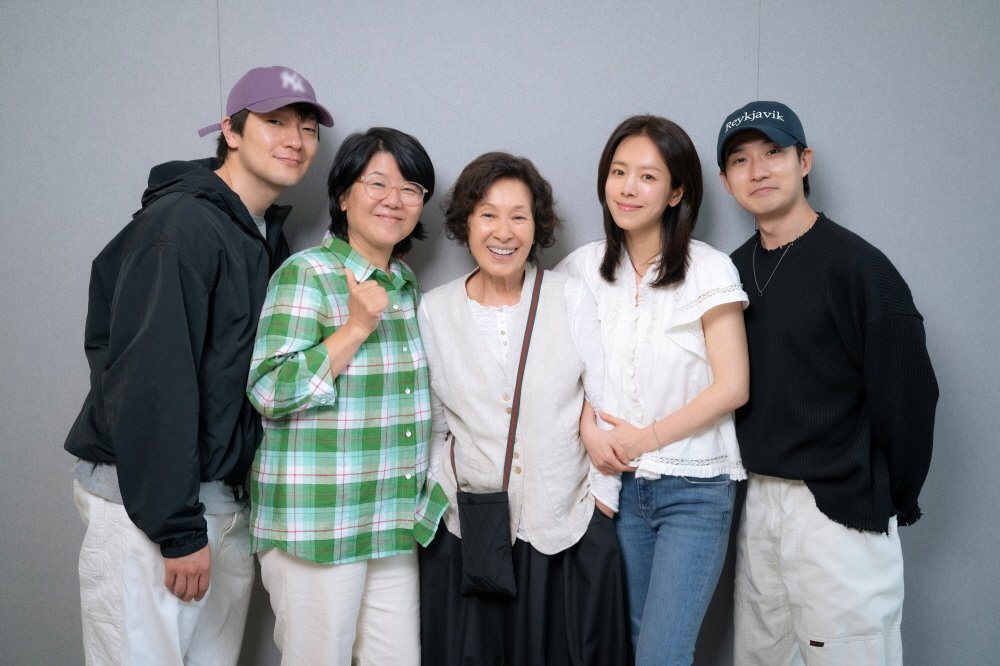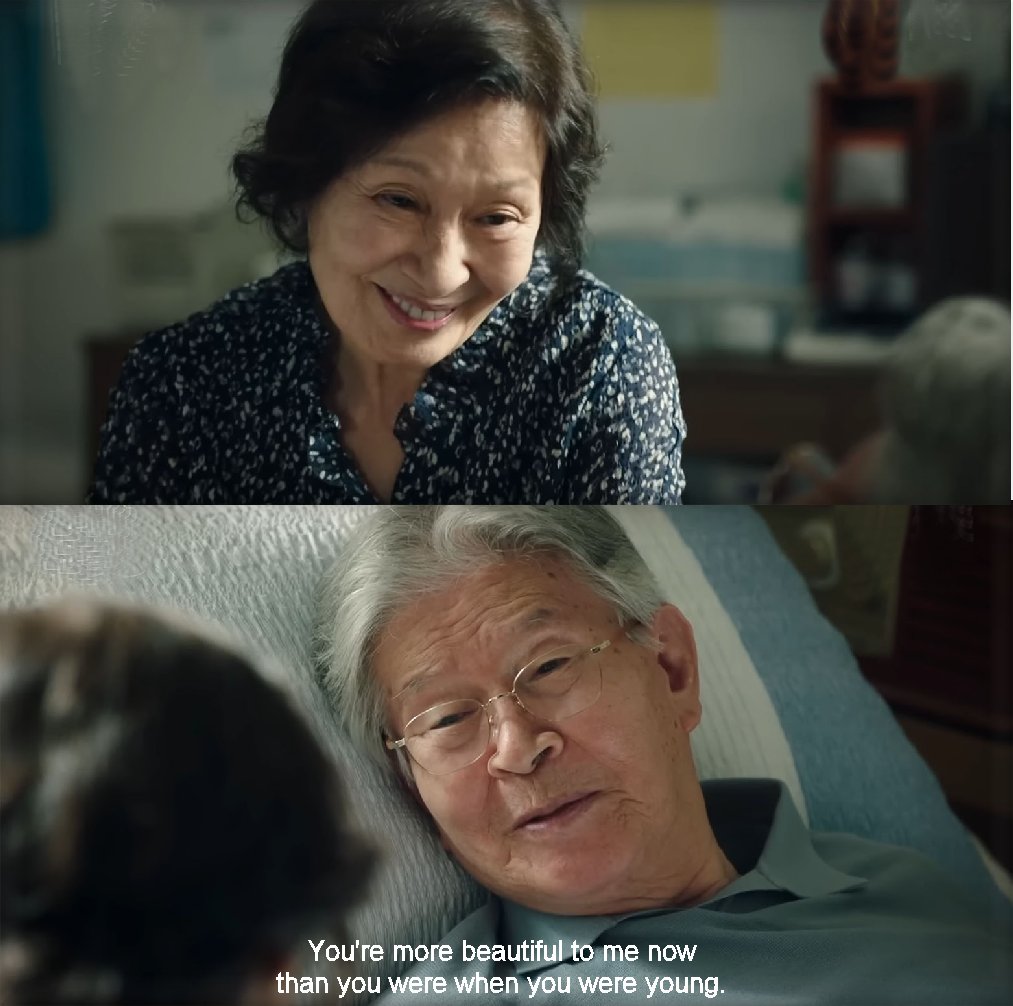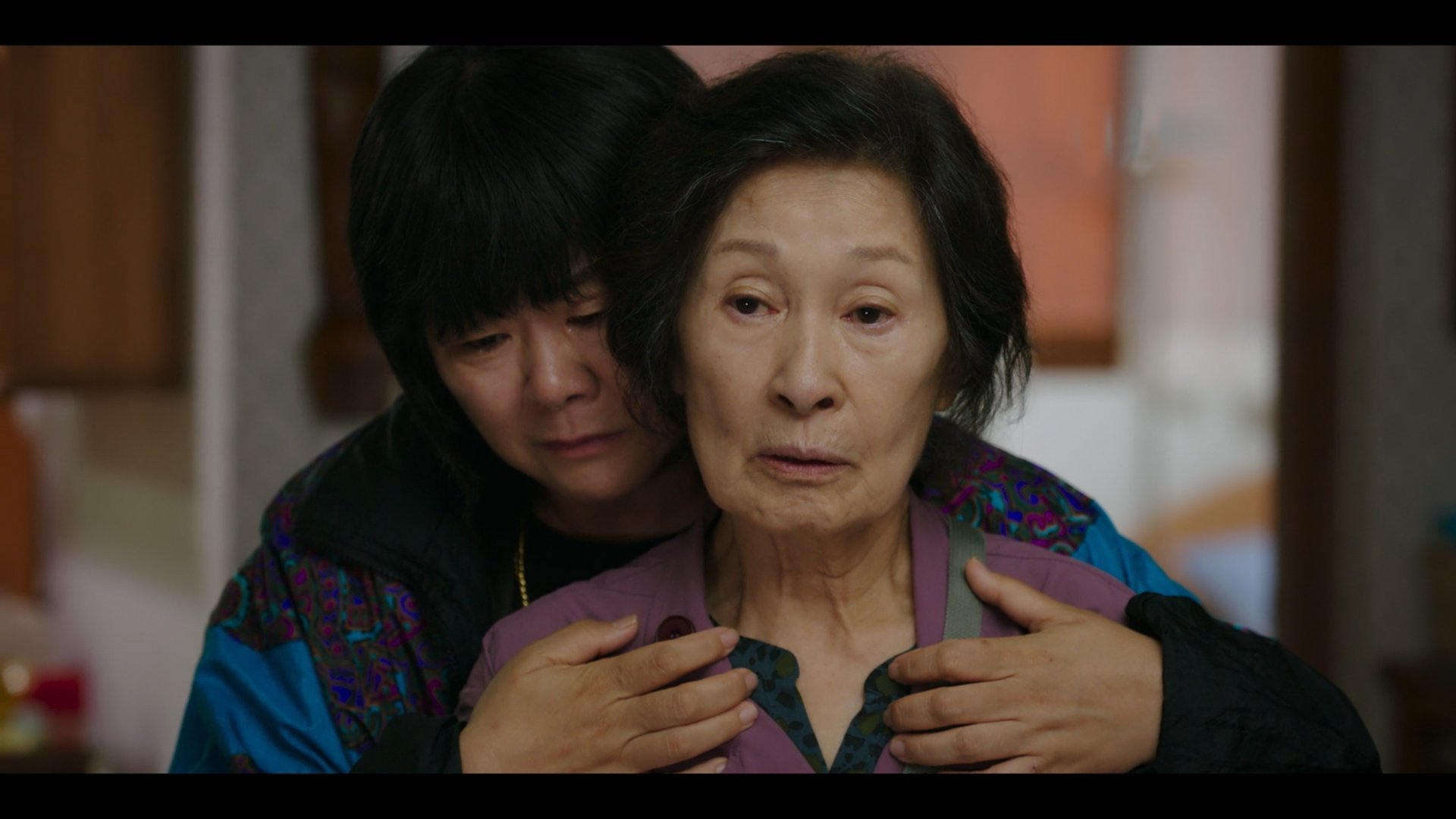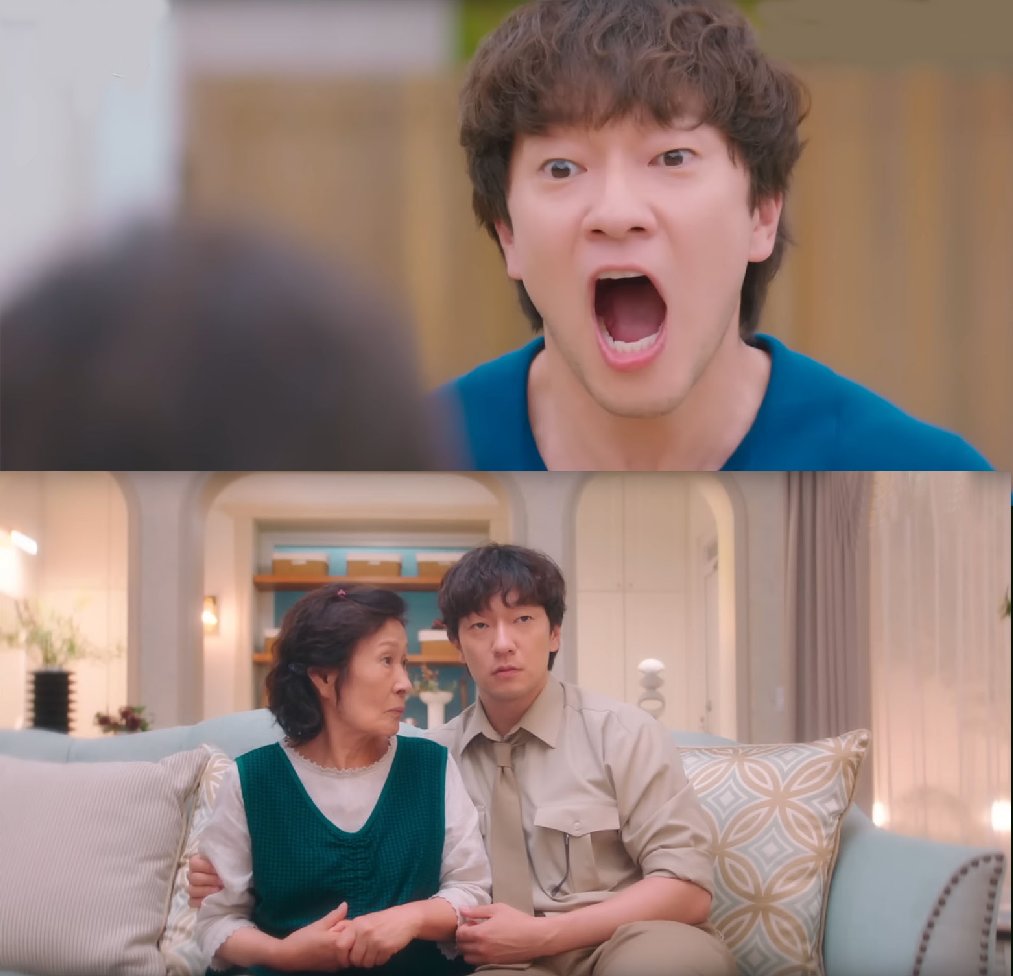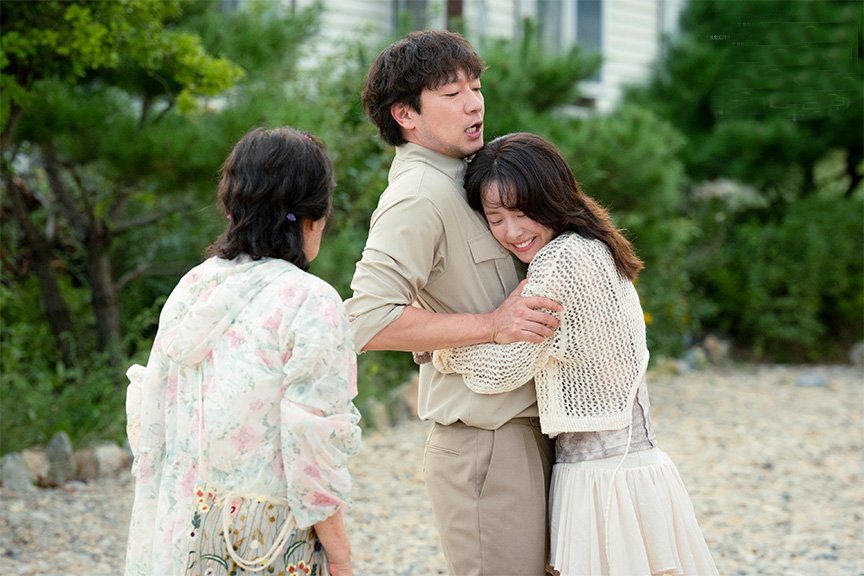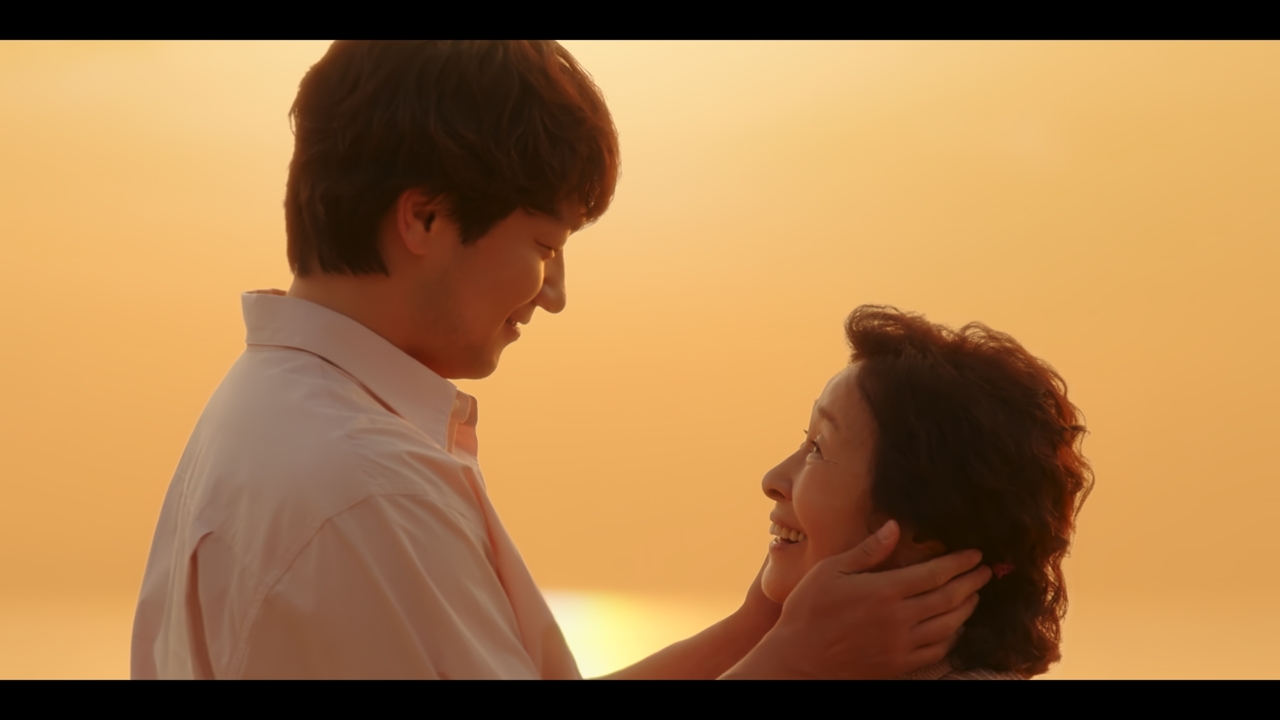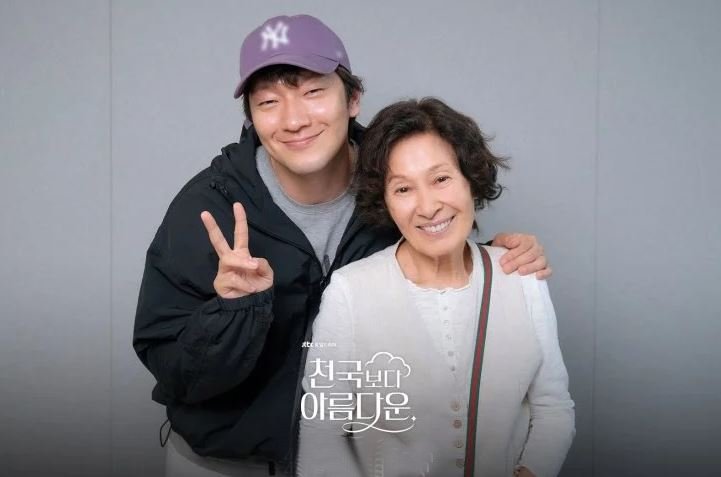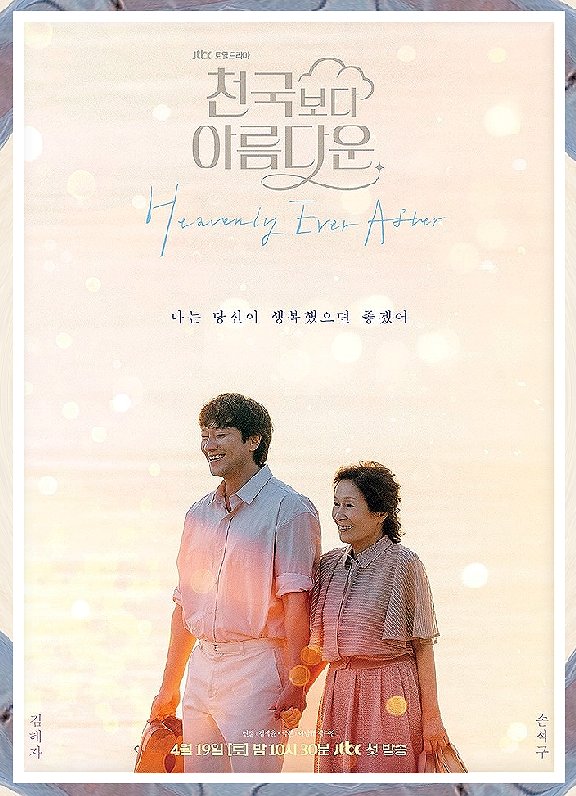
Heavenly Ever After
천국보다 아름다운
JTBC (2025) 12 Episodes
Fantasy About The Afterlife, Grade: B+
Korean Drama Review by Jill, USA
~~~~~~~~~~~~~
Imaginative fiction stories about what the Afterlife could be like after we die are always rather fascinating to me. Combine them with depictions of memorable love relationships, like in Korean dramas Goblin or 49 Days, and I become even more easily hooked on their stories. Korean drama Heavenly Ever After (2025) can be included in this genre fairly easily, as long as we recognize that it really has little to do with the Bible's picture of life after death. In Scriptural sound doctrine it's either heaven or hell for each of us when we die, depending on whether or not we came to faith in Jesus as our Savior during our lifetimes. (Jesus is crystal clear on this fact, i.e. John 3:16-18 among many other verses). This drama seems to suggest that biblical truth at the very beginning but then quickly turns into total fantasy, even bringing up the subject of possible reincarnation into the story. To me this "heaven" in the story seems more like a non-existent "purgatory", where its occupants are further cleansed before going to the real heaven where Jesus resides. Just be aware of these facts going in and you will probably still enjoy this make believe story, and all its creative twists and turns, some of them quite touching or even amusing.
I had enjoyed the dramas of this scriptwriter Lee Nam Kyu several times before, such as Awl, Radiant, Behind Your Touch, and Daily Dose Of Sunshine. The director Kim Suk Yoon had worked with Lee Nam Kyu on several of these dramas, and had also done a great job with additional dramas such as My Liberation Notes and Law School. If I had been involved in this team project I would have made the drama far more Scripturally accurate than it turned out to be. :)~~~~~~~
The cast is superlative, yet another reason to keep watching despite its biblical inaccuracies. Veteran actress Kim Hye Ja who has been working in Korean dramas since the 1960's is the main female lead and she is paired with tall handsome Son Suk Ku whom I had loved in Jirisan, DP, and My Liberation Notes; also given a prominent role is Han Ji Min who had worked with Kim Hye Ja in Radiant; Lee Jung Eun, who always gives you unforgettable performances such as in When The Camellia Blooms, Our Blues, Miss Night And Day, and the Oscar winning film Parasite; dignified veteran actor Cheon Ho Jin (The Snow Queen, Will It Snow For Christmas?, Midas, City Hunter, Bridal Mask, Chicago Typewriter); and versatile Ryu Deok Hwan (Faith, Good Doctor, films The Peach Tree and My Little Bride). They all looked like they had a blast making this drama. As of the writing of this review the drama can be enjoyed on Netflix. The cinematography always looks best on Netflix.
The Story:
We are introduced to a loving senior married couple, wife named Lee Hae Sook (Kim Hye Ja) and husband named No Nak Joon (Park Woong, elder version; later younger version Son Suk Ku). Due to an accident years earlier the husband had become a paraplegic and his wife Hae Sook had devotedly taken care of him, including working hard to earn the money for the household. Later we learn they had lost a son too, many years earlier, and had never really healed completely from the loss.
On his deathbed husband Nak Joon lovingly tells his wife Hae Sook that she looks more beautiful to him now as an elderly woman than she had in her younger days. She is extremely touched by his words. After he dies she is inconsolable with grief and soon thereafter loses the will to live. Dear loved ones like her adopted daughter Lee Young Ae (Lee Jung Eun) try to console her, to no avail.
In church she prays while a gleaming cross hangs in the background on the wall (the only reference to Jesus in the entire drama). However, nothing helps her grief and she herself passes on, suddenly finding herself on a fast speeding train that seems to be destined for both hell ... and heaven? Most of the folks on the train look very nervous. The first stop is for hell and suddenly the majority of the people on the train are lifted up by an unseen force and are whisked out the opened train doors, screaming in terror. The remainder of the passengers, including the faithful Hae Sook, seem to realize the worst is over and they are now headed for what seems like heaven.
Upon arrival (where sadly there is no Jesus to welcome her, hence my B+ grade for this drama instead of A+) Hae Sook is asked by a greeting female what appearance she would like to keep while living in "heaven", her old self or younger self. Thinking back to her late husband's loving words, that she looked more beautiful to him as an elderly woman than she had when she was younger, she elects to stay as her 80 year old self! It soon seems apparent that Hae Sook is in a minority of one! Everyone else in heaven elected to look like their younger selves! And because Hae Sook made this decision it seems that it is more common for others to hear her innermost thoughts! Oh dear, did she make the right decision? This situation embarrasses her.
Hae Sook is even MORE embarrassed when she is finally reunited with her husband Nak Joon and sees his younger self, as he looked in his thirties, approaching her with initial love and excitement ... but then shock as well. He had obviously elected to live in "heaven" as his younger self, while his wife, remembering his words on his deathbed that he thought her the most beautiful as an aged woman, had elected to remain her old self. And in the time period between their deaths Nak Joon had built them a beautiful home in "heaven", equipped with every luxury, waiting for her to join him in paradise! (Also a contradiction to Scripture where Jesus said, "In my house (heaven) are many mansions; I go to prepare a place for you.").
Hae Sook is very troubled at first at this discrepancy in their ages. Will they be able to be happy in "heaven" together with such a great gap in their ages? Her pastor in "heaven" (Ryu Deok Hwan) is both annoying yet sometimes a comfort to her, and she tries to relax and enjoy herself, but it doesn't come easy! (Unlike the Scriptural heaven where there is total peace and excitement and joy in Jesus, no more pain and no more tears or sorrow!).
In time, as they live together and engage in important conversations about their past and their future, the couple's relationship does seem to warm and their love is reinforced. Other troubles are on the horizon, however, including the arrival of a beautiful young newcomer to heaven named Somi (Han Ji Min). Nak Joon seems intrigued by her, she apparently looks very much like Hae Sook did when she was young. Could Somi actually be Hae Sook when she was young, when Nak Joon first fell in love with her as a young man? If so it won't be long before Hae Sook sees her younger self as very much a threat to her relationship with Nak Joon in the present "heaven".
Hae Sook visits with the Heaven Director Cheon Ho Jin about her concerns; he has made Nak Joon a "Postman To Heaven" which helps him be distracted from Somi. He returns to earth several times with different messages from heaven to various people who are having problems in their lives. (My favorite was a girl who was considering suicide until she fell in love with an abandoned white puppy on the street and decided to take care of it instead of dying).
Meanwhile Hae Sook has to determine what to do about Somi in "heaven". How to deal with someone who just might be the younger version of yourself? Could it ultimately be Somi herself who makes the decision about whether to stay, or leave?
Something a character says near the end confirmed my own suspicions about the underlying plot themes, but I will leave it up to you to make your own determination about them. This version of "heaven" gives the characters a chance to reflect upon what it means to be truly human. They can make their own decisions about how to be cured of old hurts and despair. I did like that concept in the drama. Yes, it took a ton of liberties with Holy Scripture but then so do many other Korean dramas as well, especially the ones dealing with reincarnation themes. Reincarnation is seen nowhere in Scripture.
I just decided to focus on the main love story here, and that was very touching indeed, especially all the scenes where Nak Joon as a young man still deeply loved the aged Hae Sook and took care of her. The affection displayed between them was truly beautiful. Is true love a matter of age discrepancies, or of shared memories and true compassion? Watch Heavenly Ever After and make that determination for yourself. Enjoy!
HOME TO KOREAN DRAMA REVIEWS
